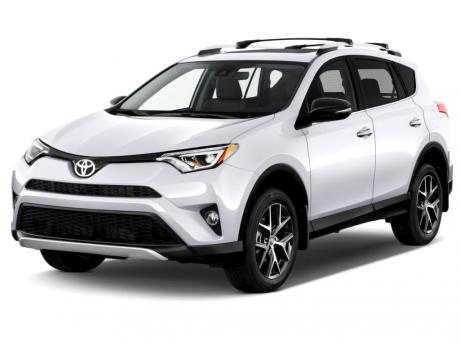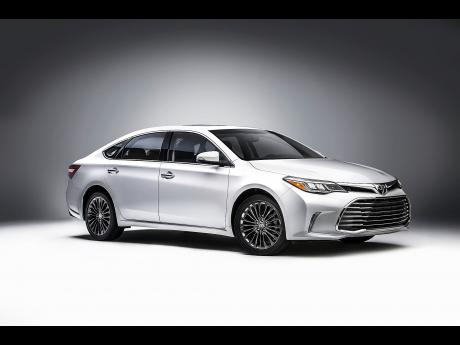Our employees are not a security threat - Toyota
Toyota came out strongly against President Donald Trump's plan to impose a steep tariff on automotive imports.
Such a tariff would "increase the cost of every vehicle sold in the country", the world's largest automaker said in a statement Thursday.
Even the Toyota Camry, built in Georgetown, Kentucky, would cost US$1,800 more, the company said.
"Toyota operates 10 manufacturing plants in the US," the statement said. "We are an exemplar of the manufacturing might of America."
The statement came just before a Friday deadline set by the US Commerce Department for comments on whether car imports present a threat to national security. If the government deems that to be so, the Trump administration has floated a 25 per cent tariff on imported cars.
On Friday, Toyota expanded on its objections in a submission to the Commerce Department.
The company, which runs its North American operations from a new headquarters in Plano, Texas, said its 137,000 American workers - employed either directly or by dealerships - do not pose a national security threat.
"We believe the only plausible outcome of this investigation is to reject the notion that automotive imports threaten national security," the company said.
Toyota also said the economic impact of auto tariffs would reach far beyond increased consumer costs and decreased car sales.
"Reduced sales would invariably lead to cuts in production which, in turn, will lead to the loss of American jobs - in the manufacturing sector, but also in sales, distribution, maintenance and finance," the company said.
This year, Toyota's North American CEO, Jim Lentz, said new steel and aluminuium tariffs alone could increase the price of a car as much as US$400.
HARDEST HIT
Analysts have said that if the tariffs are imposed, Toyota could be the hardest-hit among the world's automakers.
The proposed automobile tariffs are just Trump's latest trade gambit. He has also begun import levies on solar panels, washing machines, Canadian lumber and - most notably - steel and aluminuium. The metal duties have spun the world into a growing trade war, with the US and China threatening each other with tariffs on hundreds of billions of dollars' worth of goods.
That overall approach has sparked significant concern in Texas, whose economy is deeply dependent on trade, especially with Mexico and Canada.
On Thursday, Governor Greg Abbott wrote to Trump to urge him to reconsider the tariffs on steel and aluminuium. The Republican, echoing Texans in both political parties, warned that the levies "may threaten future economic growth both in our state and across the country".
Trump's administration is proposing the levies on national security grounds, even though the president somewhat undercut that argument this month by threatening the European Union with auto tariffs over more mundane concerns about long-standing trade barriers.
Trump on Wednesday again lashed out at the EU over automobiles.
"They send the Mercedes in. They send the BMWs in. They send their products in. We send things to them, they say, 'No, thank you. We don't take your product'," he said at a rally in North Dakota. "That's not the way it works."
The national security focus alone has mystified car manufacturers.
"America does not go to war in a Ford Fiesta," the Association of Global Automakers wrote this week in a submission to the Commerce Department.
But it's not the only concern for the automobile sector.
Tariffs typically aim to boost domestic producers and jobs. The steel industry, for example, has praised some of Trump's trade actions. But car companies, domestic and foreign, are now multinational operations with production facilities all around the world.
The Association of Global Automakers, of which Toyota is a member, pointed to the North American Free Trade Agreement (NAFTA), explaining that the deal has facilitated a situation in which auto parts often cross borders multiple times in the manufacturing process.
The end result: Imports account for 44 per cent of US car sales. Half those imports are from Canada and Mexico. Those cars feature "significant US content".
"In short, NAFTA, and trade more generally, have strengthened the global competitiveness of the US automotive industry, enabling US-built vehicles to compete with vehicles built anywhere in the world," the group wrote.
Toyota, in its response to the Commerce Department, also highlighted that point.
The company noted that "no vehicle in the United States, whether from Toyota, GM, Ford, FCA, Daimler or Hyundai, that is sole-sourced from exclusively US parts and components". That's why even the US-made Camry would also be more expensive because of tariffs, it said.
"The Camry has about 30 per cent non-US content," Toyota said.
- Contributed



